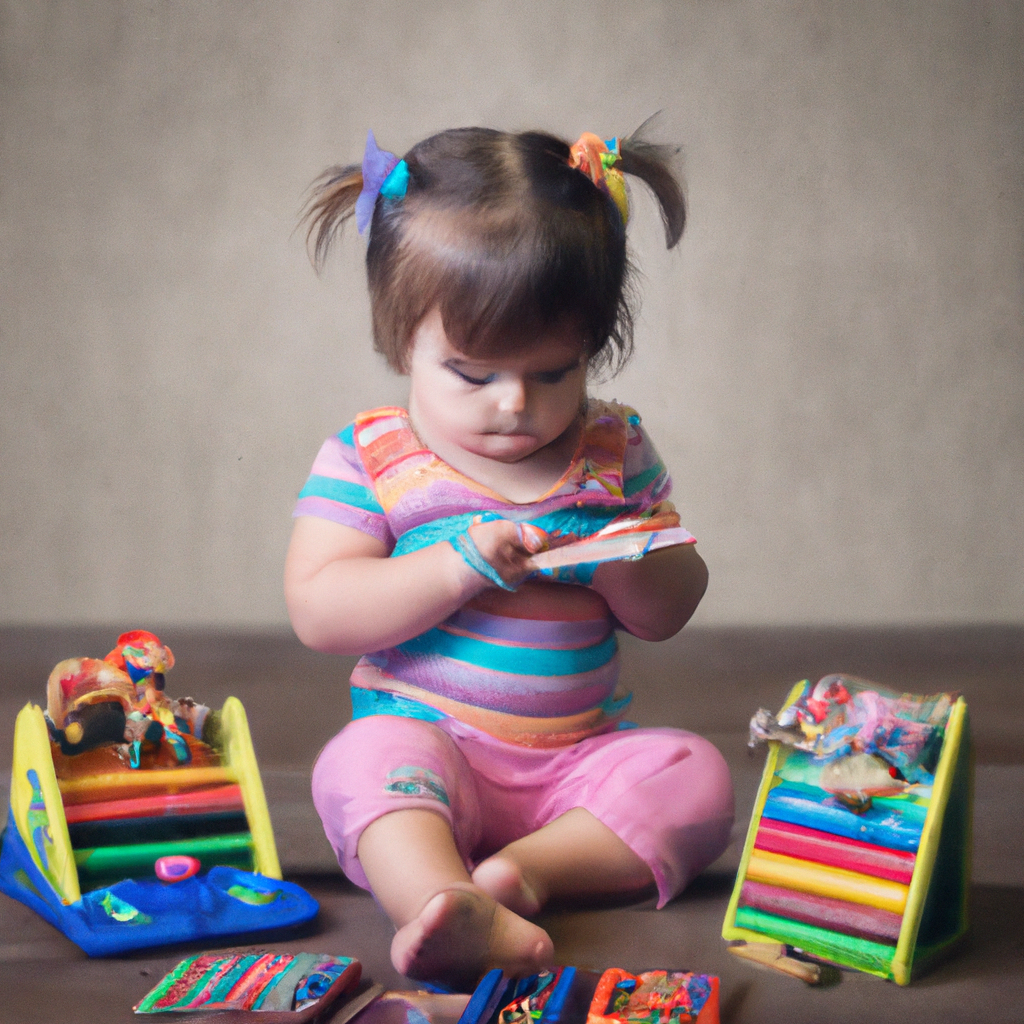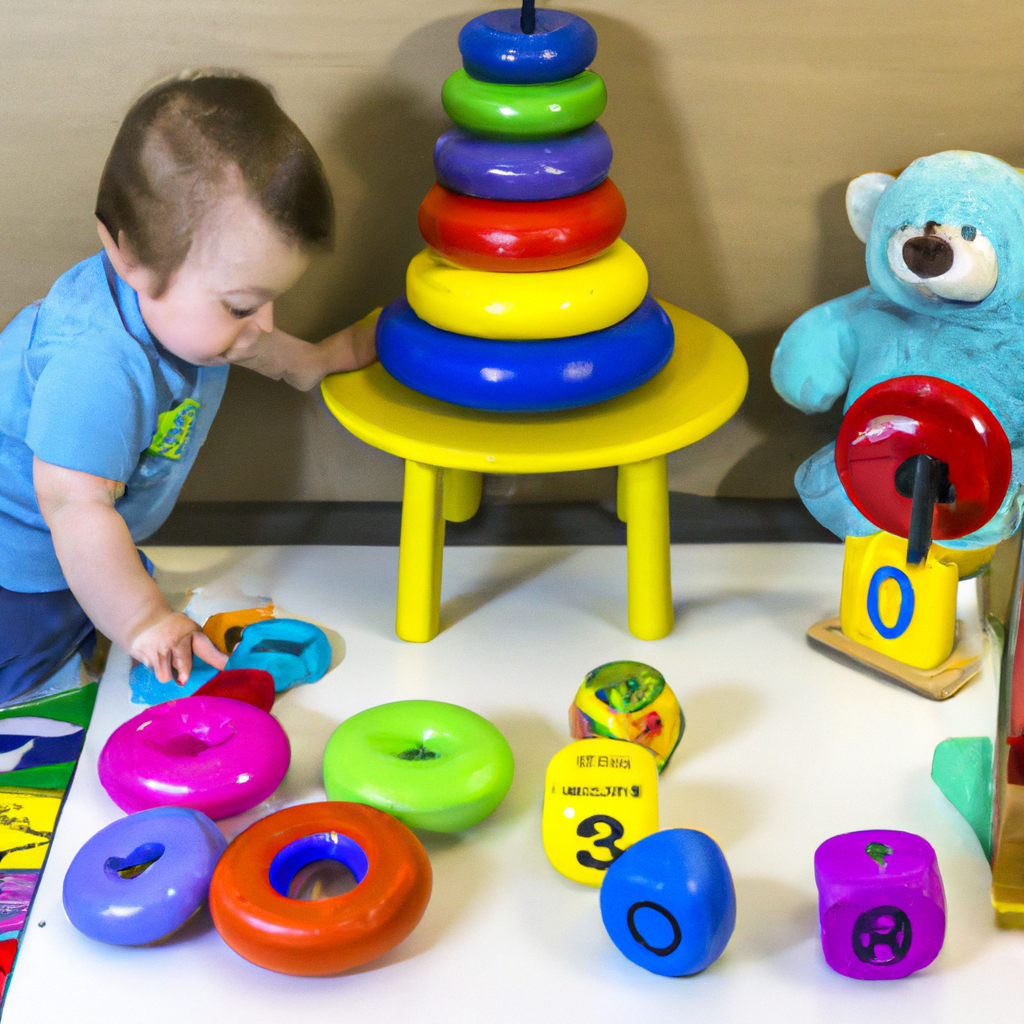As a parent, I am amazed by the deep bond that forms between my child and me. It feels as though there is an invisible connection that guides our interactions and shapes their development.
This article explores the importance of attachment in child development. Through extensive research, we will uncover how attachment influences emotional, social, and cognitive skills. We will also delve into the long-lasting impact of secure attachment on the formation of healthy relationships and the development of self-regulation.
Join me on this journey of understanding the profound role that attachment plays in shaping our children’s lives.
Key Takeaways
- Attachment significantly impacts a child’s behavior and mental health.
- Secure attachment fosters positive behavior and pro-social behaviors.
- Insecure attachment can lead to behavioral problems and difficulty forming relationships.
- Secure attachment promotes better emotional regulation, higher self-esteem, and fewer mental health issues.
The Role of Attachment in Emotional Development
The role of attachment in emotional development is crucial for a child’s overall well-being. Research has consistently shown that the quality of attachment between a child and their primary caregiver significantly impacts their behavior and mental health. Attachment refers to the emotional bond that develops between an infant and their caregiver, typically the mother. This bond provides a secure base from which the child can explore the world and regulate their emotions.
A secure attachment fosters positive behavior in children. When children feel securely attached to their caregiver, they are more likely to exhibit pro-social behaviors, such as sharing, cooperating, and empathizing with others. On the other hand, insecure attachment can lead to behavioral problems, including aggression, defiance, and difficulty forming relationships.
Furthermore, the impact of attachment on mental health cannot be overstated. Children with secure attachments tend to have better emotional regulation, higher self-esteem, and fewer mental health issues later in life. In contrast, insecure attachment has been linked to an increased risk of anxiety, depression, and other psychological disorders.
Transitioning into the next section about how attachment influences social skills, it is important to understand that the emotional bond formed through attachment plays a significant role in shaping a child’s ability to interact and connect with others.
How Attachment Influences Social Skills
When it comes to the impact of attachment on emotional intelligence, research shows that secure attachments can lead to higher emotional intelligence in individuals.
Studies have found that individuals with secure attachments tend to have a better understanding and awareness of their own emotions, as well as the emotions of others.
Additionally, attachment plays a crucial role in forming relationships, as it serves as a blueprint for future social interactions and the ability to establish and maintain healthy relationships.
Impact on Emotional Intelligence
Understanding the impact of attachment on emotional intelligence can help me develop stronger relationships and navigate my emotions more effectively. Research has shown that the quality of attachment in early childhood has a significant impact on social development and emotional regulation throughout life.
Here are a few key points to consider:
-
Secure attachment: Children who experience secure attachment with their caregivers tend to have higher emotional intelligence. They are better at recognizing and understanding their own emotions, as well as the emotions of others.
-
Insecure attachment: On the other hand, children with insecure attachment may struggle with emotional regulation and have difficulty forming healthy relationships.
-
Long-term effects: The quality of attachment in childhood can shape our ability to form and maintain relationships in adulthood. It lays the foundation for how we perceive and respond to emotions in ourselves and others.
Recognizing the role of attachment in emotional intelligence is crucial for developing healthy relationships and emotional well-being.
Role in Forming Relationships
Recognizing how attachment impacts emotional intelligence can help us form healthier relationships and navigate our emotions more effectively. Attachment plays a crucial role in building trust, which is the foundation of any strong relationship. When we have a secure attachment, we learn to trust others and feel safe expressing our needs and emotions. This trust forms the basis of healthy relationships, allowing us to develop deeper connections with others.
Additionally, attachment has a significant impact on our mental health. Secure attachments provide a sense of security and support, promoting positive mental well-being. On the other hand, insecure attachments can lead to feelings of anxiety and insecurity, which may contribute to mental health issues later in life. Understanding the role of attachment in forming relationships and its impact on mental health is essential for fostering healthy connections and maintaining emotional well-being.
Transition: Furthermore, the impact of secure attachment on cognitive development is equally significant.
The Impact of Secure Attachment on Cognitive Development
You’ll notice that secure attachment has a significant impact on your child’s cognitive development. Research has shown that the quality of attachment formed between a child and their primary caregiver plays a crucial role in their brain development and overall cognitive abilities.
During the early years of a child’s life, their brain is rapidly developing and forming connections that lay the foundation for future learning and behavior. Secure attachment provides a safe and nurturing environment that supports this brain development. When a child feels securely attached to their caregiver, they are more likely to explore their surroundings, engage in social interactions, and develop a sense of curiosity and confidence.
Studies have found that children with secure attachment tend to have better cognitive skills, such as problem-solving, attention, and language development. This is because secure attachment fosters a sense of security and trust, which allows the child to focus their energy on learning and exploring the world around them. Furthermore, secure attachment provides a stable emotional base from which the child can regulate their emotions and develop effective coping strategies.
In conclusion, the impact of secure attachment on cognitive development is undeniable. By fostering a secure attachment relationship with your child, you are providing them with a strong foundation for their cognitive growth and future academic success.
Now, let’s explore how attachment influences the formation of healthy relationships.
Attachment and the Formation of Healthy Relationships
Early bonding between caregivers and infants has a profound impact on the formation of relationships later in life. Research has shown that secure attachment promotes overall well-being, leading to healthier social connections and emotional regulation.
On the other hand, insecure attachment can have lasting effects on individuals, resulting in difficulties with trust, intimacy, and maintaining healthy relationships.
Early Bonding Impacts Relationships
When you form early attachments, it shapes your future relationships. The bond formed between a child and their primary caregiver in the early years has a profound impact on their mental health and well-being. Research shows that early bonding impacts mental health in various ways, including shaping the child’s ability to regulate emotions, develop self-esteem, and form healthy relationships later in life.
Here are three effects of insecure attachment on behavior:
-
Increased risk of developing mental health disorders: Children with insecure attachments are more likely to experience anxiety, depression, and other psychological issues as they grow older.
-
Difficulty in forming and maintaining relationships: Insecurely attached individuals often struggle with trust, intimacy, and communication in their relationships, leading to difficulties in forming and maintaining healthy connections with others.
-
Impaired social and emotional skills: Insecure attachment can hinder the development of essential social and emotional skills, such as empathy, emotional regulation, and understanding others’ perspectives.
Understanding the impact of early bonding on mental health and behavior emphasizes the importance of fostering secure attachments to promote well-being.
Secure Attachment Promotes Well-Being
Forming secure attachments in the early years positively impacts a child’s mental health and overall well-being. Research consistently shows that children who have secure attachments with their caregivers are more likely to develop resilience and experience better emotional well-being throughout their lives.
When children have a secure base, they feel safe to explore the world around them, knowing that they can always return to their caregiver for comfort and support. This secure attachment promotes resilience by providing a foundation of trust and security, which helps children navigate challenges and setbacks more effectively.
Additionally, secure attachments foster emotional well-being by promoting healthy emotional regulation and the development of positive coping strategies. By building strong, secure attachments, we can lay the groundwork for children to thrive and achieve their full potential.
As we move into discussing the effects of insecure attachment, it is important to understand the significant impact that a lack of secure attachment can have on a child’s development.
Effects of Insecure Attachment
Lack of secure attachments can significantly impact a child’s emotional well-being and ability to cope with challenges. When a child experiences neglect or insecure attachment, there can be long-term consequences that affect their overall development.
Here are four key effects of neglect and insecure attachment:
-
Emotional difficulties: Children who lack secure attachments may struggle with regulating their emotions, leading to difficulties in managing stress and forming healthy relationships.
-
Behavioral problems: Insecurely attached children are more likely to exhibit challenging behaviors such as aggression, defiance, and impulsivity.
-
Cognitive delays: Neglect and insecure attachment can hinder cognitive development, resulting in difficulties with attention, problem-solving, and academic performance.
-
Social difficulties: These children often have difficulties forming and maintaining relationships, experiencing loneliness and social isolation.
Understanding the effects of neglect and insecure attachment is crucial in addressing these challenges and providing effective support for children’s development.
In the subsequent section, we will explore the relationship between attachment and the development of self-regulation.
Attachment and the Development of Self-Regulation
Attachment plays a crucial role in how children develop self-regulation skills. When infants and young children form secure attachments with their primary caregivers, they learn to trust and rely on them for comfort and support. This secure base allows them to explore the world with confidence, knowing that they can return to a safe and nurturing relationship. Through this attachment process, children develop important self-soothing techniques and emotional regulation skills.
Self-regulation refers to the ability to manage and control one’s thoughts, emotions, and behaviors. It is a vital skill that allows children to navigate through challenging situations and adapt to the demands of their environment. Research has shown that children who have secure attachments with their caregivers are more likely to develop effective self-regulation skills compared to those with insecure attachments.
Table: The Role of Attachment in Self-Regulation Development
| Attachment Style | Self-Soothing Techniques | Emotional Regulation Skills |
|---|---|---|
| Secure | Comforting themselves | Identifying and expressing emotions appropriately |
| Insecure-Avoidant | Avoiding or suppressing emotions | Difficulties in expressing emotions and seeking comfort |
| Insecure-Anxious | Seeking excessive reassurance | Difficulties in self-soothing and regulating emotions |
Understanding the link between attachment and self-regulation is crucial for parents and caregivers. By providing a secure and nurturing environment, they can help children develop healthy self-regulation skills that will benefit them throughout their lives.
This strong foundation of attachment and self-regulation also plays a significant role in the development of resilience.
The Link Between Attachment and Resilience
In the previous section, we explored how attachment plays a crucial role in the development of self-regulation in children. Now, let’s delve into the link between attachment and resilience, and how it impacts mental health.
Research suggests that a secure attachment between a child and their primary caregiver acts as a protective factor for mental health. When children have a secure attachment, they develop a strong foundation of trust, which enables them to navigate challenges and setbacks more effectively. This emotional bond provides them with a sense of safety, comfort, and support, promoting their resilience.
Children with secure attachments are more likely to develop healthy coping mechanisms, regulate their emotions, and have better mental health outcomes later in life. They have a secure base from which they can explore the world, knowing that their caregiver will be there to provide comfort and reassurance if needed. This secure base enhances their resilience, allowing them to bounce back from adversity and cope with stress more effectively.
Understanding the link between attachment and mental health highlights the importance of fostering secure attachments in early childhood. It emphasizes the significance of emotional bonding between children and their caregivers, which we will explore further in the next section.
Attachment and the Importance of Emotional Bonding
To build a strong foundation of trust and resilience, it’s crucial for you to form a deep emotional bond with your primary caregiver. Emotional bonding is a vital aspect of parent-child attachment, and it plays a significant role in shaping a child’s development.
Research has consistently shown that children who have secure emotional bonds with their caregivers tend to have better emotional regulation, social skills, and overall mental well-being.
Emotional bonding occurs when a caregiver consistently responds to a child’s needs, providing comfort, love, and support. This connection creates a sense of security and safety for the child, allowing them to explore the world with confidence. It also helps them develop a positive sense of self and builds a solid foundation for healthy relationships in the future.
Furthermore, emotional bonding is not only beneficial for the child’s emotional and social development but also impacts their cognitive growth. Studies have demonstrated that secure attachment promotes better brain development, particularly in areas responsible for emotional regulation and stress response. This means that children who have a strong emotional bond with their caregivers are more likely to have improved cognitive abilities, attention span, and problem-solving skills.
Understanding the importance of emotional bonding and parent-child attachment sets the stage for exploring how attachment shapes the brain development in children.
How Attachment Shapes the Brain Development in Children
When caregivers consistently respond to a child’s needs, it creates a sense of security and safety, shaping the child’s brain development. This is because the early years of life are a critical period for brain plasticity, which refers to the brain’s ability to change and adapt in response to experiences. Research has shown that secure attachment relationships have long-term effects on a child’s brain development.
During the first few years of life, the brain undergoes rapid growth and development. The quality of the child’s early relationships, particularly with their primary caregivers, plays a crucial role in shaping this development. When a child feels secure and loved, their brain releases hormones that promote healthy brain growth. On the other hand, when a child experiences neglect or inconsistent caregiving, their brain development can be negatively affected.
Secure attachment also helps children develop important skills, such as emotional regulation and the ability to form healthy relationships. When caregivers respond consistently and sensitively to a child’s needs, it teaches the child that they can rely on others for support and comfort. This sense of security allows the child to explore their environment and learn about the world around them.
Frequently Asked Questions
What Are Some Factors That Can Hinder the Development of Secure Attachment?
Parental neglect and inconsistent caregiving are significant factors that can hinder the development of secure attachment. When children don’t receive consistent care and attention from their primary caregivers, they may struggle to form a secure and trusting bond.
Parental neglect, which includes a lack of emotional responsiveness and support, can also negatively impact a child’s attachment. These factors disrupt the child’s ability to develop a sense of security, leading to potential long-term consequences for their emotional and social development.
How Does Attachment Style in Early Childhood Affect Adult Relationships?
Attachment style impact can have long-lasting effects on our emotional well-being and adult relationships. It shapes how we form connections and trust others.
Just like a sturdy foundation supports a building, a secure attachment in childhood sets the stage for healthy relationships later in life.
On the other hand, insecure attachment styles can lead to difficulties in forming and maintaining intimate connections.
Understanding the impact of attachment style is crucial for fostering healthy relationships and overall well-being.
Can Attachment Difficulties Be Overcome Later in Life?
Attachment difficulties can be overcome later in life, but they can have a lasting impact on social relationships. Research shows that individuals who have experienced attachment difficulties may struggle with forming and maintaining close relationships.
However, with therapy and support, it is possible to develop healthier attachment patterns and improve social connections. It is important to recognize the impact of attachment on adult relationships and seek help if needed to overcome any difficulties that may have stemmed from early experiences.
Are There Any Long-Term Effects of Insecure Attachment on Mental Health?
Long-term effects of insecure attachment on mental health can be significant. Research shows that individuals who experienced insecure attachment in childhood are more likely to develop mental health issues later in life. These can include anxiety, depression, and difficulties in forming and maintaining healthy relationships.
The impact of insecure attachment on mental health can be far-reaching and may require professional intervention to address. It highlights the importance of promoting secure attachment in early childhood for optimal mental well-being in adulthood.
How Does the Quality of Attachment in Infancy Impact Academic Achievement in Later Years?
The quality of attachment in infancy can have a significant impact on academic performance and emotional well-being in later years. Research shows that secure attachment promotes positive social and emotional development, which in turn can contribute to better academic outcomes.
Children who have a secure attachment with their caregivers tend to have higher self-esteem, better problem-solving skills, and more positive relationships with peers and teachers. On the other hand, insecure attachment can lead to difficulties in these areas, which may negatively affect academic achievement.
Conclusion
In conclusion, it’s crucial to recognize the immense importance of attachment in child development.
The impact of attachment on emotional, social, cognitive, and relationship development cannot be overstated. Without a secure attachment, children may struggle to form healthy relationships, regulate their emotions, and develop resilience.
Furthermore, attachment plays a vital role in shaping the brain development of children. It is through strong emotional bonds that children truly thrive and reach their full potential.
So let’s not underestimate the power of attachment in shaping the future of our children.
Avery brings the magic of words to life at Toddler Ride On Toys. As a dedicated writer, she combines her love for writing with her fascination for child development to craft articles that resonate with our audience. With a background in journalism and a knack for storytelling, Avery’s pieces inform, engage, and inspire parents and caregivers.










